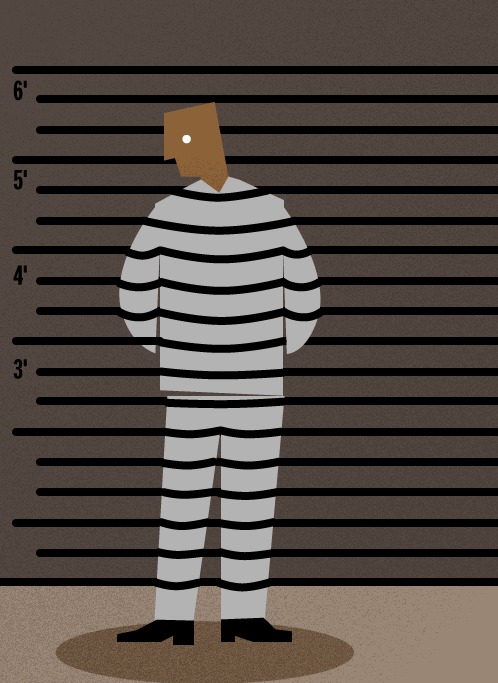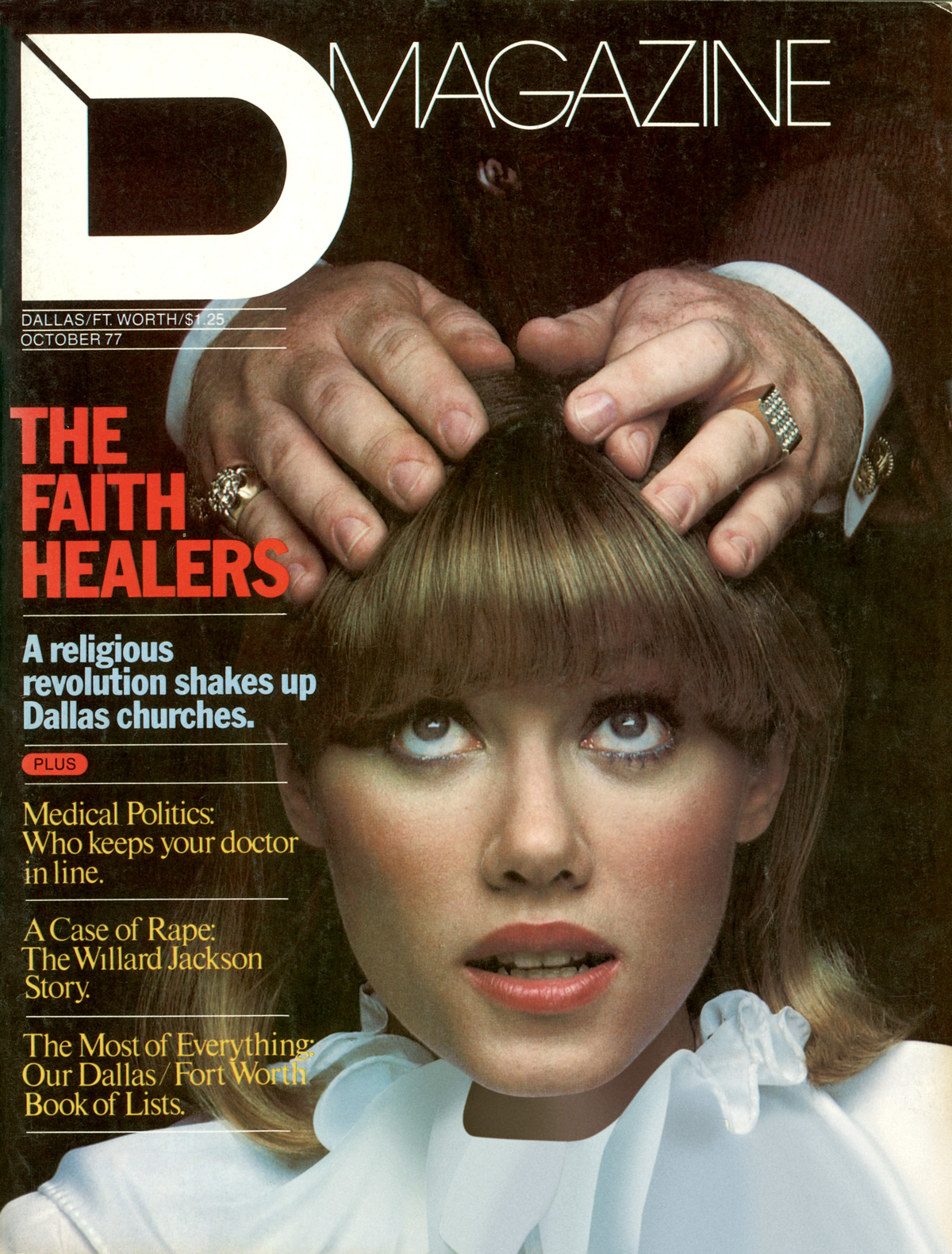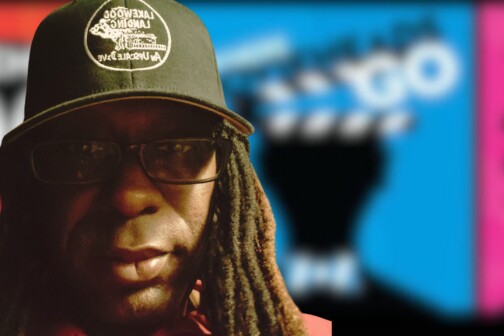There was only one possible problem. The prosecution was now preparing to bring on a last-minute State witness, Detective Don McElroy, who administered Jackson the lie detector test the morning after arrest. Tessmer did not know quite what the DAs had in mind. Time-honored precedent precluded admission of the results of polygraph exams in court proceedings; the testing process just wasn’t reliable enough yet. That would leave McElroy’s conversation with Jackson prior to the exam. But that conversation would seem to be inadmissible too, unless it constituted a confession by the defendant that led the police to some corroborating evidence.
Tessmer was worried about Gossett. The gray-haired judge had predictably favored the prosecution throughout the trial. If Gossett allowed some or all of McElroy’s testimony, it could well turn the trial.
McElroy was called to the stand, sworn in.
Eubanks: “I will ask you, if back on January 16, 1972, you had occasion to interview one Willard Bishop Jackson?”
“I did.”
Tessmer: “Objection on grounds previously stated Your Honor, in violation of confession statute.” “Overrule objection,” said Gossett flatly. “Exception.”
Eubanks knew he had to tread carefully. He was as aware as Tessmer that McElroy’s testimony walked a thin line. He would ask McElroy one question, and let it lie. The only way the polygraph result might become admissible was if Tessmer asked a question on cross concerning “the rest” of the conversation. That would, as lawyers put it, “open the gate.”
Eubanks: “All right. Now, we are precluded from going into the details of the whole conversation, but I will ask you this question. What he told you with regard to leaving Austin on the date of the offense and arriving in Dallas…”
Tessmer objected again; overruled again.
McElroy: “He mentioned he had left Austin, Texas, somewhere around 6 p.m. arriving in Dallas somewhere around 9:30 or 10 p.m.”
“Pass the witness.”
Tessmer considered his options. The witness was now his. The business about leaving Austin as early as six was already in the record; all he could hope for was a reversal based on improper rulings by the judge in admitting the testimony. Tessmer felt that the statement constituted little more than an imprecise recollection by a suspect after hours of grueling interrogation. But to the ears of the jury, it represented a big smudge on the theretofore impeccably clean alibi. He wished there were some way to put the statement in context for the jury. He knew Jackson had also maintained his innocence during the conversation. That was at least as significant as the 6 o’clock statement. Should he let the jury know that? Well, why not. He certainly had something to gain by it, and — so he thought at that moment — nothing to lose.
Still a bit hesitant, he responded, “No questions, Your Honor.” Then, as the detective dismounted from the witness box, Tessmer queried offhandedly, “Oh, Mr. McElroy, he did tell you he wasn’t guilty, didn’t he?”
“Yes.”
“Thank you.”
Eubanks was on his feet before Tessmer had sat down. It was the unlikely opening he’d been looking for; as far as he was concerned, Tessmer’s question about the rest of the conversation had opened everything up — including the polygraph exam.
Eubanks: “Judge, may we go into the entire conversation that took place?”
“You may at this point since he asked him that.”
Tessmer was livid. “Your Honor,” he thundered. “They opened it up.”
Gossett: “I know, but you asked part of the conversation.” Nodding to Eubanks, he added, “Bring him back if you want to.” As Tessmer squirmed and fumed in
his chair, wondering to himself what other creative ways Gossett could find to ensure a reversible error, Eubanks conferred with Tokoly. “Your Honor, may we have a moment to refer to our — confer with our appellate division to make sure we are not putting any error into this case?” Typical, thought Tessmer, that Eubanks, the prosecutor, had to look out for errors in Gossett’s court. Well, he didn’t know what Henry Wade’s appellate division would say, but he knew what he thought. It was an error, a reversible error on two counts. But once again, that would do Jackson no good at the moment.
Eubanks: “Detective McElroy, you did ask him [Jackson] quite a few questions?”
“Yes, sir.”
“I will ask you, Detective McElroy, if the defendant, Willard Bishop Jackson, indicated that he was in the Americana Apartments the night of November 28, 1971?”
Clever, thought Tessmer. “Indicate” meant one thing in common usage; quite another when discussing a polygraph. In this case, all it really meant was that Jackson had shown some physical reaction, some recognition of the Americana Apartments, on the lie box. Since he’d been listening to the detectives talk about the scene of the crime and other details for hours before taking the test, he of course registered recognition.
Tessmer: “That’s objected to as leading, suggestive and in violation of the confession statute, in violation of Article 1, Section 10, and under the circumstances, this inquiry being made first by the State, no opening up of the conversations.”
“Overruled.”
“Exception.”
Finally McElroy was able to give his damaging answer.
Tessmer continued to fume. Sure, he understood the wide range of things polygraph results could mean. But did the jury? He was tired of fooling himself. No, they didn’t. This testimony, as structured by Eubanks, was coming off as plain old salt-and-pepper confession.
Eubanks, bearing down now, continued. “Will you tell us whether or not he indicated that one of the complainants was wearing a silver or blonde wig?”
“Yes.”
“I will ask you if he indicated that he did in fact have sexual relations, and by that I mean intercourse, with a female wearing a blonde wig?” [Beverly wore a blonde fall the night of the attack.]
“Yes, sir.”
“I will ask you if he indicated that he reached a climax?”
“Yes, sir.”
“I will pass the witness.”
Tessmer: “Your Honor, could we have about five minutes’?”
Now he had a critical problem. He could tell that the testimony rocked the jury out of a peaceful slumber; in the complex, lengthy trial, with little or no physical evidence on either side, the McElroy testimony had offered the jury something to latch on to.
Tessmer decided to recall Willard Jackson to the stand. He quickly led his client through a reaffirmation of his innocence:
“Now, once again, Willard, where were you between the hours of 9:45 on November 28th and 1:15 a.m. Nov. 29, 1971?”
“I was in Austin.”
And so it went. Did you know of the Americana Apartments before this case came up? No. Did you rape and shoot two girls there? No. Tessmer realized it was scant rebuttal in the eyes of the jury: After all, he was using the words of the accused against the word of a policeman. A jury of average folk probably wouldn’t buy that. But under the circumstances, it was all he could do.
Final arguments began the next morning. Les Eubanks led for the State. An impressive presence in the courtroom, tall, lean and matinee-idol handsome, Eubanks’ summation was clean and neat. He reviewed the facts of the case in detail, emphasizing the positive identification by both girls of Willard Jackson. Speaking of Beverly, he said, “She swore to God to tell the truth, and she told you folks there wasn’t one shred of doubt in her mind. And Mr. Tessmer could not shake that woman. She is positive that’s the man. I think she’s believable. I think she’s right.”
He concluded with a potshot at Tessmer: “Now, again, I anticipate that you’re going to hear a blast of oratory that’s going to make you doubt whether or not you might have been in the courtroom. Mr. Tessmer is very skilled. We don’t attempt to match him in oratory. I’m going to ask you to base your verdict not upon oratory, but upon the credible facts of the case…”
Then, while reaching a fever pitch in his closing statements, Les Eubanks did something he may never live down at the Dallas County Courthouse. In words that fairly oozed with irony, he said, “The verdict which you render if you do that will, of course, be that this man here, John L. Lewis, was guilty of rape back on November 28, 1971…” It was, of course, an innocent mistake, but an interesting one. And one befitting this bizarre case.
Tessmer chose to ignore Eubanks’ gaffe and get at the heart of the matter right away. “Now, in my way of thinking,” he said, “the real issue here is not that these young women were assaulted badly … but the thing that amazes me is that there is no physical corroboration of those two eyewitnesses, not any at all. What this comes down to is not all the terrible things that happened to these young ladies, but do they have the right man here?”
He paused and threw a knowing look at the jury. He moved on: “We know he had this mustache a long time. Now, here is a college graduate, happily married, $1,200 dollars a month joint income, he and his wife out there robbing one girl of $2 and the other of 50. It doesn’t make sense, does it?”
Tessmer’s voice dripped with sarcasm as he moved to his next point. “If he was looking at her [at the Sportspage] and he was the guilty man, what would you or I have done? Do you think he would have been in the Sportspage waiting for the officer? He would hit that back door so fast it never would have closed before he got out of the door.
“You want to be sure when you’re bringing a man in guilty. If you had one ounce of corroboration. Look at the things that speak to his innocence. We know he’s in Austin by about eight alibi witnesses. What else? When he agreed to search, he knew he had guns out there. Had he been guilty he would have said, I don’t sign anything.’”
He hammered through the rest of the defense points. Why had Margaret Moore taken so long to identify Jackson? Wasn’t the ID process a little funny, with five pictures of Jackson? What of the watch? Bullets? Fingerprints?
Speaking of the girls’ testimony, he said: “Identification evidence is not only the worst evidence, it’s the most dangerous … because if you’re wrong, think what you’re going to do to this man. You’re going to destroy him if you make a mistake.
“If this was an ordinary case, I would have no worries at all about your verdict. But do weigh this case carefully. His whole future is at stake. This man is not the man that committed these crimes. He’s either upstairs in jail or roaming the streets today. Give this man the benefit of this reasonable doubt and find him not guilty.”
Steve Tokoly took the State’s last argument. He wasted no time jumping back at Tessmer. “Mr. Tessmer attacked not only the prosecution, but the police, and everyone else on trial, except the defendant. Why would any good defense attorney do that? Folks, there is one reason: That’s to get your mind off this man who is seated here.” Repeatedly referring to Tessmer’s argument as a smoke screen, the young assistant DA addressed the matter of John Lee Lewis: “You saw both those girls say, after looking at Lewis, ’He’s not the man.’ I think you must have noticed Lewis is bigger, and he’s meaner looking and acting.” He went on to emphasize Beverly’s description of the man as cool, calm and collected. “If Lewis had been standing at the door, it would have been ’Katie bar the door.’” He attacked the alibi: “Now, really using your common sense, let’s think about it. Eight months since the offense occurred, yet they remember exact times right down to the minute.” He attacked the character witnesses: “Don’t be fooled by character witnesses. They can’t account for his conduct on the date we’re concerned about here.”
Concluding, he said: “I’m going to ask you to find him guilty for three reasons. Because the law of rape fits him like a glove, because all of the facts of this case, all of the believable facts say he’s guilty and last … because he is.”
The jury had been out only an hour, when it requested one piece of evidence to review. Tessmer’s heart sank as he heard the bailiff say they wanted McElroy’s testimony. His worst premonitions about the case were partially confirmed.
And then fully confirmed, two hours later. The jury found Willard Bishop Jackson guilty of the rape of Beverly Michaels. Three hours later, after additional argument from the attorneys, the jury assessed him 25 years for the crime.
Despite his grave disappointment, Tessmer did not consider the conviction a total loss. For one thing, the jury had given Jackson an uncommonly low sentence for the crime of rape: 25 years. That was half the average sentence for that crime in Dallas County. Such “compromised verdicts” were rare at Henry Wade’s courthouse; even prosecutors would agree that such a relatively lenient sentence indicated the 12 men and women — like all other observers of the trial — were more than a little ambivalent about Jackson’s guilt. For another thing, Tessmer was convinced the trial record was rife with reversible errors which, coupled with the defense attorney’s well-known skill at argument before the appeals court, made a new trial for his client a better-than-average proposition.
None of that, of course, could wipe from his memory the look of utter confusion and bitter resignation on Jackson’s face as he left the courtroom that day. The young man would spend one and a half to two years behind bars — even if granted a new trial.
Ann Jackson wasn’t about to sit still. As her husband was swept off to Huntsville Prison, and from there, on to Coffield Farm, a minimum-security prison in Palestine, the young housewife made his eventual freedom her obsession. She wrote letters to every elected official she could think of: Congressmen Dale Milford, Barbara Jordan and Jim Collins; Governor Dolph Briscoe; Attorney General John Hill; Lt. Governor Bill Hobby; State Senator Oscar Mauzy; State Rep. Eddie Bemice Johnson; even President Richard Nixon. She even penned notes to black activists Angela Davis and Ralph Abernathy. The answers, though varying in sympathy, were all the same: Your husband’s plight sounds questionable; unfortunately, we have no authority to do anything. We suggest you contact your attorney.
Meanwhile, the Jacksons’ friends, many of whom had testified as character witnesses at his trial, began raising money to aid the now-destitute couple. The Jacksons had paid Tessmer’s initial fees out of their own pockets. Church and other community groups would eventually raise some $10,000 to help the couple, as the trial of Willard Jackson became a cause célèbre in the black community. The NAACP even got involved, investigating possible civil rights violations during his custody and trial. To many lay observers, such actions all carried the same message: Willard Jackson did not seem capable of such crimes.
Meanwhile, Tessmer and his office were busy too. After intensive research, some one dozen errors were extracted from the record. Tessmer first made two different motions for a new trial in Gossett’s court; both were denied. On August 25, 1972, he sent a lengthy and rather scorching brief to the Texas Court of Criminal Appeals. The grounds for reversing the conviction were many:
- The admitted conversation with Detective McElroy constituted an improper oral confession.
- Said conversation was also inadmissible because it involved a polygraph examination
- Beverly and Margaret’s testimony regarding identification of Jackson was improperly “bolstered” by Detective Wagoner.
- The prosecution improperly forced Jackson to testify that Beverly had lied, by comparing testimony.
- Prosecutor Tokoly committed error in his final argument on two counts: By implying that Judge Gossett did not believe the alibi, and by implying Jackson had gone “hunting” the night of his arrest.
- The denial of evidence regarding both the confession of John Lee Lewis and the proved confusion of the Longview man between Jackson and Lewis was improper.
Tessmer felt as confident of a reversal as he ever had. There were at least six reversible errors in the brief; even some of his colleagues told him that. Moreover, his friend and famed colleague Percy Foreman had been retained by Jackson’s friends to review the appeal. Foreman, no lightweight when it came to appellate work, said the appeal was solid.
But, as is so often the case in criminal law, only time would tell. Prosecutors Eubanks and Tokoly had filed an impressive answer to the brief. And, at the minimum, it would be a couple of years before the State or Tessmer would have another shot at the guilt or innocence of Willard Jackson. If then.
Get the D Brief Newsletter
Author







